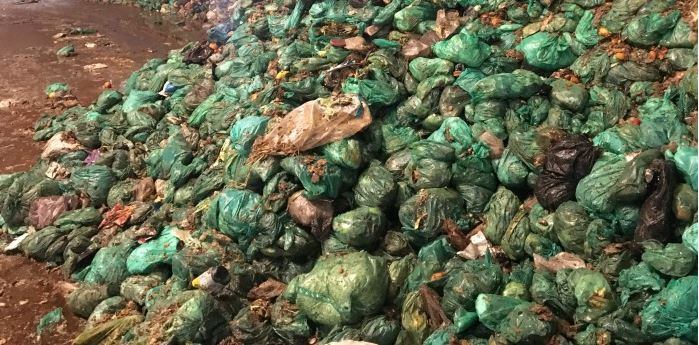Researchers from the Technical University of Denmark (DTU) describe the one and a half year project as “sustainable and climate-friendly” as it uses biogas produced from organic waste from Copenhagen households.
From the production of biogas, methane is excreted, which is then used as a growth agent for microorganisms are rich in protein with a high content of the essential amino acids Lysine, Threonine, Valine, Histidine, Leucine, Iso-leucine and Phenylalanine.
With EU approval of the biomass produced for potential use in protein supplements, project leader professor Irina Angelidaki said, “There are great prospects for future more climate-friendly food production if we succeed in using the new technologies to use organic waste to extract proteins.”
“We recycle with our methods both the organic material and the nutrients from the household waste, so that nothing is wasted. This will minimize the environment.”
Nitrogen and phosphorus
In addition to methane, nutrients such as nitrogen and phosphorus are also used in the growth of bacteria. Both parts are abundant in the wastewater from biogas production.
Both methane and the separated nutrients from the biogas production enter the reactor where the bacteria produce single-celled proteins.
“A mixed microbial culture is used that mainly consists of strain within Methylococcales and Methylophilales order,” said Angelidaki.
“Methylococcus capsulatus ‒an obligatory methanotrophic bacterium ‒is expected to be present in high abundance. However, the detailed microbial composition is under examination this period.”
The proteins can then be harvested from the reactor, freeze-dried and used as a protein supplement.
According to Angelidaki, the practice could also replace traditional protein sources such as fishmeal and soybean meal and stands as an eco-friendly solution to substitute equivalent materials from petrochemical.
“From a bio-refinery point of view, the production of microbial protein from bio-waste can impose lower burdens on human health compared to the production of common protein sources,” she added.
“We will use a whole new electrochemical technology to extract the nutrients nitrogen and phosphorus from the wastewater to use them in the production process of proteins," added fellow researcher associate professor Yifeng Zhang.
Unibio involvement
Angelidaki revealed that Unibio, one of the project partners is already producing a protein-rich biomass (approximately 72% protein) that can be used as a direct supplement in animal feed compounds.
“Within the present project, we will explore the possibility of producing protein-rich biomass using gas and liquid streams of anaerobic digestion process fed with bio-waste,” she added.
“Subsequently, a whole new market can open for the industrial partner to find inexpensive sources for gas feed and nutrients to produce microbial protein.”
A pilot demonstration of the methods will be built on Wastewater Treatment Plant Avedøre in collaboration with Unibio, Envidan and Biofos. The project is supported by MUDP and has a duration of one and a half years.

